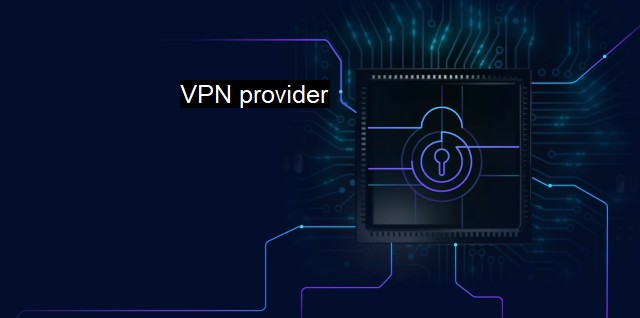What is VPN provider?
The importance of VPNs in today's digital age: Protecting your online activities from advanced cyber threats
A Virtual Private Network (VPN) provider, with is a product or service that offers users a secure online connection by creating elaborate digital tunnels, through which the user’s data travels, safe from prying entities or cyber threats. Simply put, a VPN service hides your online activity, providing anonymity and granting you virtual access to bypass geographic restrictions.Primarily, VPN providers act as protective vigilant guards. They mask the original identifying details of the user, specifically their IP address. As you go online, your IP address is visible to websites. This digital footprint can expose you to unwanted tracking or even targeted attacks. By utilizing a VPN, users receive a new, independent IP address, effectively shrouding their online activity and making it highly difficult for anyone to track or exploit data.
VPN providers are essential within the cybersecurity landscape given that they act as a defense against unwanted governmental surveillance, targeted ads, or potential cybercriminals. In many countries where Internet censorship is a significant issue, VPNs can offer a lifeline, bypassing geographical restrictions and providing freedom of internet access, a factor which has rendered VPN providers crucial elements in this internet-centric world.
The encryption of data is another core responsibility and function of a VPN. The data that you send or receive is transformed into complex codes. This encryption process adds layers of security, effectively creating a complicated online puzzle which only the proper keys can unlock. Should anyone intercept this data, they will meet with indecipherable information, ensuring the asset stays confidential and inaccessible to nefarious activities.
VPNs raise another barrier by promoting and utilizing secure protocols, a further contest for potential hackers. When you browse the internet through a VPN, it is these secure protocols that ensure your data safely reaches the intended end destination, without falling into the wrong hands. These protocols also help to prevent the entrance of malicious entities like viruses and malware, which tend to piggyback on data during transmission.
This is where the relationship between VPN providers and antivirus software lies. This collaboration forms a comprehensive shield against malicious disruptions. While a VPN masks identity and conceals and secures data within encrypted tunnels, antivirus software takes up the role to provide active defenses against potential live threats. The antivirus software scans incoming data, detects malicious patterns or viruses, and subsequently acts to protect the system. Together, both VPN and antivirus software form an integrated web of protection that assures users about their online safety from highly evolved technological threats.
That being said, it’s important to understand that neither cybersecurity measure is meant to replace the other. Somehow, adopting just one cannot fully protect you from a multifaceted approach by cybercriminals. This is because VPNs excel in retaining users' anonymity, preventing data leakage and bypassing internet censorship. On the other hand, antivirus software is particularly effective at identifying viruses, worms, Trojans, spyware and more lateral active threats. As such, they work complementarily together, creating a wholesome cybersecurity approach.
Employing a VPN provider within today's cybersecurity landscape is crucial. A VPN provides a robust vault of encrypted data, masks user identity, uphold internet freedom while collaborating well with antivirus software to counter various potential digital threats. Though fundamental, these are indispensable perks, bearing in mind the recent increase in attack vectors and the global approach internet criminals have adopted. All these outlined attributes are reasons why VPN service providers remain, without any dispute, necessary components of cybersecurity folklore, and should be part and parcels of anyone's digital life.

VPN provider FAQs
What is a VPN provider?
A VPN provider is a service that offers virtual private network (VPN) connections to users. VPN providers allow users to securely and privately access the internet, protecting their online activity from prying eyes.How does a VPN provider improve my cybersecurity?
A VPN provider encrypts your internet traffic, making it much harder for hackers and other cybercriminals to intercept and steal your data. Additionally, a VPN provider can help protect against malware and phishing attacks by blocking malicious websites and URLs.Can a VPN provider help protect against viruses?
While a VPN provider can add an extra layer of security to your online activity, it is not a substitute for a comprehensive antivirus program. A VPN provider can help protect against certain types of malware and phishing attacks, but it should not be your sole defense against viruses.What should I look for in a VPN provider?
When choosing a VPN provider, it is important to look for features such as strong encryption, a no-logging policy, a wide range of server locations, and user-friendly software. You should also consider the provider's reputation, customer support, and price.| | A | | | B | | | C | | | D | | | E | | | F | | | G | | | H | | | I | | | J | | | K | | | L | | | M | |
| | N | | | O | | | P | | | Q | | | R | | | S | | | T | | | U | | | V | | | W | | | X | | | Y | | | Z | |
| | 1 | | | 2 | | | 3 | | | 4 | | | 7 | | | 8 | | |||||||